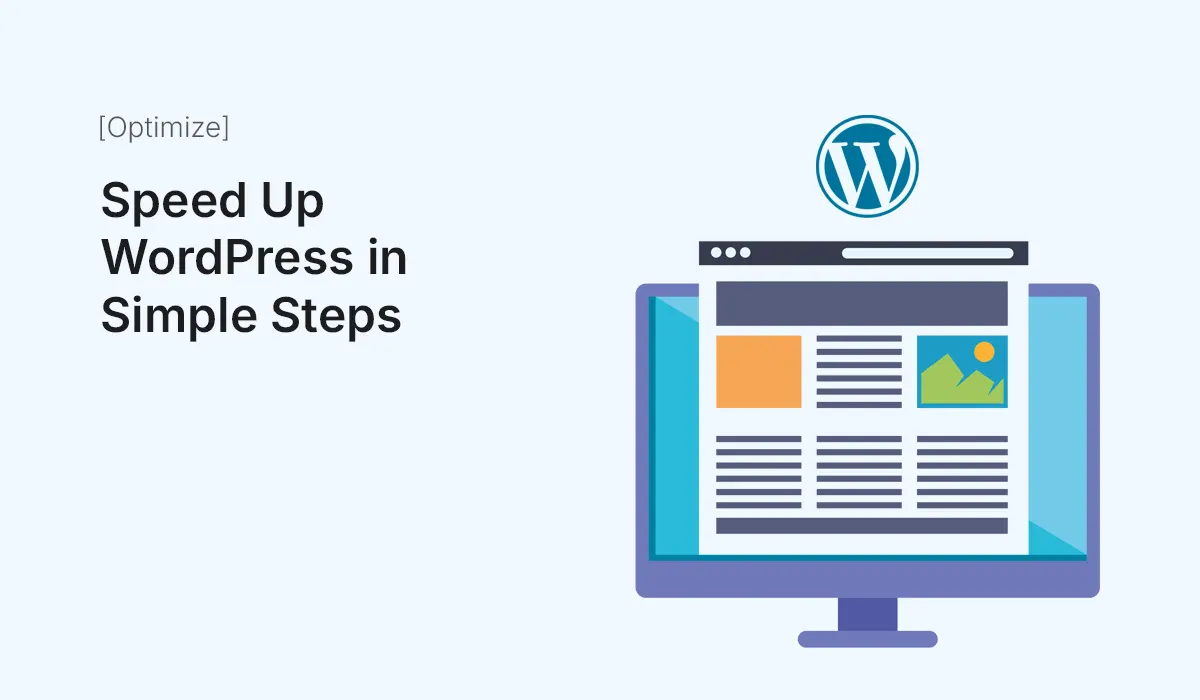Website speed is crucial for user experience, search engine rankings, and overall website success. A slow WordPress site can lead to high bounce rates and lost visitors. The good news is, speeding up WordPress is simple with the right strategies. In this guide, we’ll walk you through easy steps to optimize your WordPress site for speed.
Why Speed Matters for WordPress Sites
- Better User Experience: Fast-loading sites keep visitors engaged.
- Higher Search Rankings: Google favors faster websites in search results.
- Increased Conversions: Users are more likely to take action on a quick site.
- Lower Bounce Rates: Slow sites lead to visitors leaving before content loads.
Step 1: Choose a Fast and Lightweight Theme
The theme you choose impacts your site speed:
- Use lightweight themes like Astra, GeneratePress, or Neve.
- Avoid themes with excessive features and scripts you don’t need.
- Check demo performance using tools like GTmetrix or PageSpeed Insights.
Pro Tip: Minimalist designs often load faster due to fewer elements and scripts.
Step 2: Use a Caching Plugin
Caching reduces server load and speeds up page delivery:
- Recommended plugins: WP Rocket, W3 Total Cache, or LiteSpeed Cache.
- Features: Browser caching, page caching, and database optimization.
- Configuration: Follow plugin instructions to enable caching for your site.
Step 3: Optimize Images
Large images are a common cause of slow websites:
- Resize images before uploading (max width: 1200px).
- Use image compression plugins like Smush, ShortPixel, or Imagify.
- Use WebP format for better compression without losing quality.
Step 4: Minify CSS, JavaScript, and HTML
Minification removes unnecessary spaces and comments:
- Plugins like Autoptimize or WP Rocket handle minification automatically.
- Combine multiple CSS or JS files when possible to reduce HTTP requests.
Pro Tip: Test your site after minifying to ensure it works correctly.
Step 5: Use a Content Delivery Network (CDN)
A CDN stores your website files on multiple servers worldwide:
- Recommended CDNs: Cloudflare, BunnyCDN, or StackPath.
- Benefits: Faster loading for visitors globally and improved security.
- Easy integration with most WordPress sites via plugins or hosting settings.
Step 6: Optimize Your Database
A cluttered database slows down your website:
- Use plugins like WP-Optimize or Advanced Database Cleaner.
- Clean up old revisions, spam comments, and transients.
- Schedule regular database optimization.
Step 7: Limit Plugins and External Scripts
Too many plugins or scripts can affect site speed:
- Deactivate and delete unnecessary plugins.
- Avoid plugins that load heavy scripts on every page.
- Use lightweight alternatives whenever possible.
Step 8: Enable Lazy Loading
Lazy loading ensures images and videos load only when visible on the screen:
- Use WordPress built-in lazy loading (WordPress 5.5+).
- Plugins like a3 Lazy Load can provide additional options.
Pro Tip: Lazy loading reduces initial page load time and improves Core Web Vitals scores.
Step 9: Choose a Reliable Hosting Provider
Your hosting affects speed significantly:
- Opt for hosting optimized for WordPress like SiteGround, Bluehost, or Kinsta.
- Consider managed WordPress hosting for automatic updates and performance optimization.
- Avoid cheap, overcrowded shared hosting if your site grows.
Step 10: Test Your Website Speed Regularly
- Use tools like Google PageSpeed Insights, GTmetrix, Pingdom.
- Monitor improvements after implementing each optimization step.
- Focus on metrics like load time, First Contentful Paint (FCP), and Largest Contentful Paint (LCP).
Conclusion
Speeding up WordPress doesn’t have to be complicated. By following these simple steps—choosing a fast theme, caching, optimizing images, using a CDN, and limiting unnecessary plugins—you can significantly improve your website’s performance. A faster site not only enhances user experience but also boosts SEO and engagement.
Start optimizing today! Follow these simple steps to speed up WordPress and create a fast, user-friendly, and SEO-ready website for your visitors.






